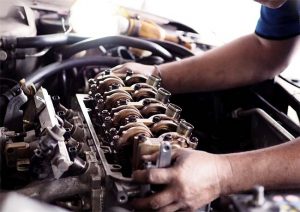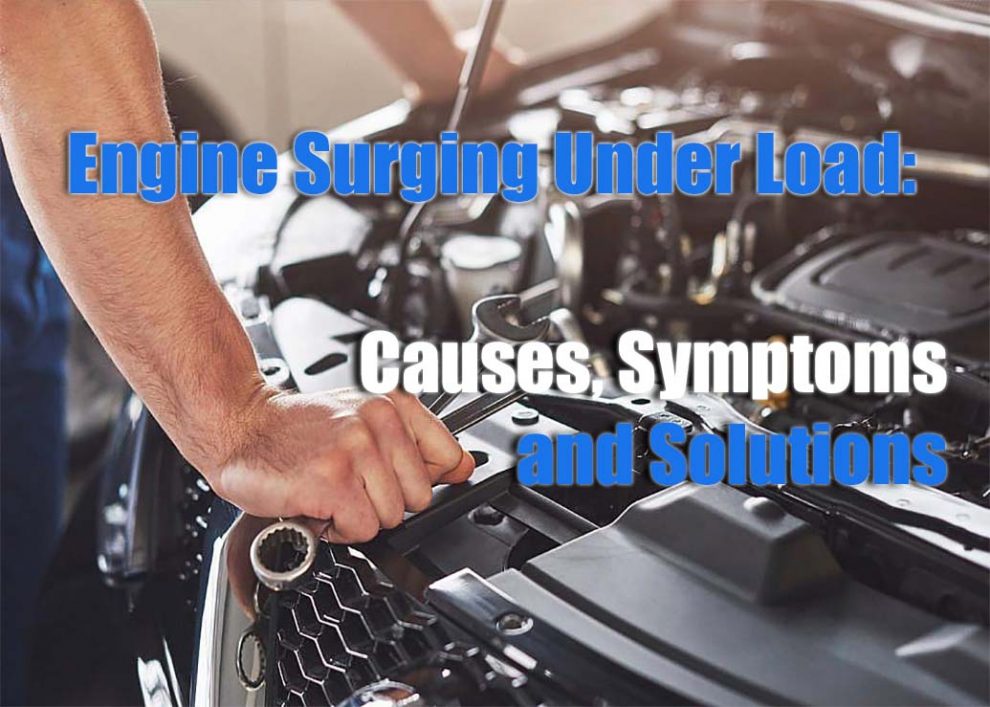Engine surging refers to a situation where the engine’s RPMs fluctuate or “hunt” while under load, causing a noticeable change in power and performance. This condition can be both annoying and potentially dangerous, as it may lead to reduced vehicle control and increased risk of accidents. Engine surging under load can result from various issues, including fuel delivery problems, ignition system faults, or issues with the air intake system.
Common Causes of Engine Surging Under Load
Several factors can contribute to engine surging under load. Some common causes include a clogged or dirty fuel filter, which can restrict fuel flow and cause inconsistent fuel delivery; a malfunctioning fuel pump or fuel pressure regulator, which can result in improper fuel pressure; and a faulty or dirty mass air flow sensor, which can disrupt the air-fuel mixture. Additionally, issues with the ignition system, such as worn spark plugs or a failing ignition coil, can cause engine surging.
Symptoms of Engine Surging
 There are a few telltale signs of engine surging under load that drivers should be aware of. These symptoms include fluctuating RPMs, reduced power and acceleration, and unstable engine performance. In some cases, engine surging may be accompanied by a check engine light or other warning indicators. If you notice any of these signs, it’s essential to diagnose and address the issue promptly to avoid further engine damage or potential safety hazards.
There are a few telltale signs of engine surging under load that drivers should be aware of. These symptoms include fluctuating RPMs, reduced power and acceleration, and unstable engine performance. In some cases, engine surging may be accompanied by a check engine light or other warning indicators. If you notice any of these signs, it’s essential to diagnose and address the issue promptly to avoid further engine damage or potential safety hazards.
Diagnosing and Repairing Engine Surging Issues
To diagnose engine surging issues, a thorough inspection of the fuel, air intake, and ignition systems is typically necessary. A professional mechanic or experienced DIYer can use specialized diagnostic tools, such as a scan tool or multimeter, to pinpoint the source of the problem. Once the cause has been identified, repairs may involve cleaning or replacing the affected components, such as the fuel filter, mass air flow sensor, or spark plugs. Additionally, upgrading the air intake system to the Best Cold Air Intake for Honda Civic can help prevent future engine surging issues by ensuring that your engine receives a consistent supply of cool, oxygen-rich air. This improved air supply can enhance combustion efficiency and overall engine performance, reducing the likelihood of surging problems.
Preventing Engine Surging Under Load
To prevent engine surging under load, it’s crucial to maintain your vehicle’s fuel, air intake, and ignition systems properly. Regularly inspect and replace components as necessary, including fuel filters, air filters, and spark plugs. Additionally, adhere to your vehicle manufacturer’s recommended maintenance schedule and use high-quality fuel, oil, and replacement parts to ensure optimal engine performance. Finally, if you notice any symptoms of engine surging, address the issue promptly to minimize the risk of further engine damage or potential safety hazards.
In conclusion, understanding the causes, symptoms, and solutions for engine surging under load can help you maintain your vehicle’s performance and ensure a safe driving experience. Regular maintenance and prompt attention to potential issues are key to preventing engine surging and keeping your engine running smoothly for years to come.


Add Comment